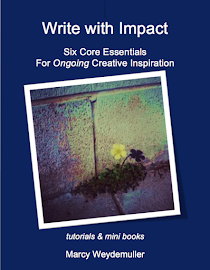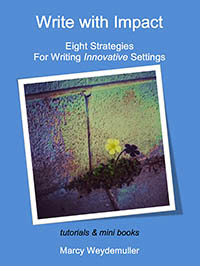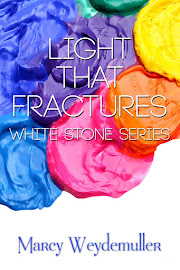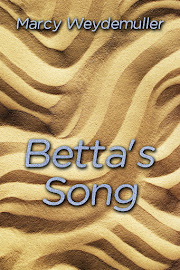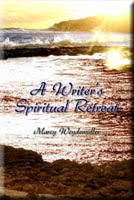Thursday, June 26, 2014
Strategy # 1 Habitat Highways
Build
Your Story: 8 Strategies for Writing Innovative
Setting with Impact
Introduction
“The tourist may look
at a place and think ‘What does it do? What is it like? How much does it please
me?’ but the fiction writer must look at a place and think ‘What does it
suggest? What does it mean to me? What does it mean to my characters?’” Jack
Hodgins
He suggests that in order to
achieve this perspective, a writer needs to construct a place—“real or
invented”—rather than describe it. By choosing specific details you both
impress the landscape on your reader and connect them to the meaning of your
world. Think habitat.
“Stare
at your world until you discover what it has to offer you,” he says.
There are many ways to develop this
focused center in any scene. You can begin from the inside out by imagining the
location of your setting visually and finding just the right pieces to fit the
emotional core. Or you begin from
a natural habitat and focus on the specifics that define your atmosphere and
story questions.
For example a setting on the moors can
portray an image of beauty, wildness, danger, freedom and loneliness. An added
element might be the choice of dwelling. Is the habitat an ancient stone castle
weather beaten with crumbling bricks, a wooden hut, or a modern architectural
masterpiece? How would each of these possible homes blend or contrast the
physical geography?
A desert, ocean, forest, meadow,
stream, canyon and island all have distinct characteristics. Even if your character
will be interacting with all kinds of terrain there will still be one that is
‘home.’ One that will quietly represent a direct heart highway, either towards
security, or away towards uncertainty.
Too early in your story yet to
decide which habitat best suits your purpose? Try this brainstorm. If your
character were to transform into her emotional habitat, what animal or bird,
flower or tree, body of water, type of wind would she become? Where would you
most likely find that setting geographically?
Read deep, marcy
Share: What in your
character’s natural habitat could become a danger to him or her?
Labels:
8 Strategies for Innovative Settings,
Atmosphere,
Build Your Story,
Free blog workshop,
Habitat Highways,
Write with Impact
Thursday, June 19, 2014
Build Your Story: 8 Strategies for Writing Innovative Settings With Impact
Innovative
synonyms:
|
Over the past twelve weeks we’ve looked at the
definitions and concepts behind the words mythic
and impact to examine timeless
precepts for strengthening our stories. So how do we practically apply them?
In the synonym list above you’ll notice that not
all the applications need to be radical. Fresh, creative, and groundbreaking
are as effective at creating a unique impact as is inventive. Settings for your
short story, or memoir, or novel may range from a quiet backdrop to a mega-world with a character of its own. But no matter which level you choose for the
degree of presence, each still resonates with atmosphere, tone and mood. It is
your choice how to boost their impact when relevant.
It’s important for us to first know the
details ourselves. Just as we can walk around our homes in the dark, knowing
exactly where we are, so must our characters. What is real to them needs to be real
to us—physically, emotionally, and spiritually. This provides authentic
atmosphere, tone, and mood. But it doesn’t mean we need to invent everything.
In this free eight-session blog workshop
we’ll examine eight key strategies to create impact for our unique setting
regardless of genre. Each month will focus on one strategy with three or four
applications and creative writing prompts to customize to your work. Whether
you are just beginning a new project or are ready to revise, these suggestions
will give you critical perspective.
Several
of my clients have given me permission to use their settings as examples, so we
will be looking at a variety of novel excerpts from contemporary women's fiction,
romantic police drama, historical romance and adventure and mystery, sassy
comedy, fantasy and a smidge of sci-fi, as well as a mythic world in my own
upcoming series.
Read
deep, marcy
Introduction June
26th
Workshop Sessions
Begin July
3 rd
Strategy # 1 Habitat Highways July
Strategy # 2 Holy Landscape August
Strategy # 3 Historic Landmarks September
Strategy # 4 Hungry Territory October
Strategy # 5 Honest Sensory Keys November
Strategy # 6 Homespun Locale December
Strategy # 7 Harmful Dangers January
Strategy # 8 Hidden Secrets February
Share:
What questions do you want answered for your specific setting? Send them to me
via the contact link above and I will incorporate feedback and examples when
possible in the individual lessons.
Thursday, June 12, 2014
Write with Impact Definition: Timeless
Mythic Impact
For any story to have impact it needs to touch at least one
seed of: basic needs, kindred spirits, compassion, justice, and many more themes
that equal a timeless quality.
Why? That is a basic story question that must be answered
every time to have a satisfactory ending. And it is a question each person
struggles with personally in varying concerns throughout a lifetime. Throughout
eras and history and science and faith.
Tobias says that theme is your inertial guidance system. However, to have impact, it needs to
go deeper than a surface answer, especially ones that may only be plot devices.
Even when the subject is a lighthearted comedy or romance the feelings, and
questions, and answers, need to have real substance.
This is one reason I think why some considered poorly written novels
and cheesy movies outvote critical reviews for popularity. Their heart has an
essence that resonates in spite of, and maybe because of, many flaws. Readers
and viewers identify.
The movie The Princess
Bride was originally not a box-office success; yet it went on to develop a
huge following when released to home videos. Many fans can quote the movie
almost line by line and, according to wikipedia, a BBC film critic considers it
a model to which similar films should aspire.
The Harry Potter
series upended the publishing world with both positive and negative commentary.
There didn’t seem to be any middle ground when it first launched.
From a serious viewpoint, one biblical prophet challenges
his listeners with a timeless statement, “He
has told you, O man, what is good; And what does the Lord require of you, But
to do justice, to love kindness, And to walk humbly with your God?” Micah 6:8
Impact=Timeless. Seed fiction and non-fiction narratives
with mystery, yearning, truth, hope, imagination, creativity; then add inspiration,
memory, potential, action, and courage as genre appropriate. Impact=heart and
mind and soul as unforgettable.
Share: What does
your heart most desire in a story?
Read deep,
marcy
Labels:
Build Your Story,
Definitions,
Essence,
Ronald B. Tobias,
Story Questions,
Timeless,
Write with Impact
Thursday, June 5, 2014
Write with Impact Definition: Courage/Comfort
Mythic Impact
 As writers we are all familiar with the hero’s journey,
whether we choose to use that concept in our novels or not. And sometimes the
criteria for what we first consider to be heroic characteristics can be
multi-layered and even opposite.
As writers we are all familiar with the hero’s journey,
whether we choose to use that concept in our novels or not. And sometimes the
criteria for what we first consider to be heroic characteristics can be
multi-layered and even opposite.
One of the most interesting assignments I gave my college
students was an essay assignment where they compared and contrasted definitions
and interpretations re heroes and celebrities and everyday people. An article
on Rosa Parks stated, “Perhaps the most
interesting thing about her was how ordinary she was.” Almost every essay
submitted included this quote.
And almost every essay came down to an opinion that courage
defined a hero. The courage to act in a difficult situation that might be considered
life threatening, as well as the sheer courageous action of a parent getting up
every morning and taking care of the family. Most defined courage as commitment
in action.
That perception of courage also became a comfort, because
these young college students recognized that, while celebrities might rise and
fall, commitment was a choice open to everyone—every day. And that often the
courage may go ignored or unappreciated yet the ‘hero’ persevered regardless.
It gave others hope to face their difficult circumstances.
Some stories require the celebrated hero, but for impact the
core commitment needs to be grounded in everyday reality. There is a trust that
this hero would be just as faithful day in and day out. Impact recognizes the
courage of an extremely shy character speaking up in a public meeting, or an
energetic rather loud extravert sitting quietly so as not to frighten a young
child.
Our stories can resonate more deeply when we recognize and
sustain the heart courage in action of our characters, especially the ordinary
ones.
Share: What
attributes define your heroes?
Read deep,
marcy
Labels:
Action,
Build Your Story,
Commitment,
Definition Courage/Comfort,
Heroes,
Ordinary,
Write with Impact
Subscribe to:
Posts (Atom)



